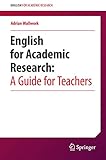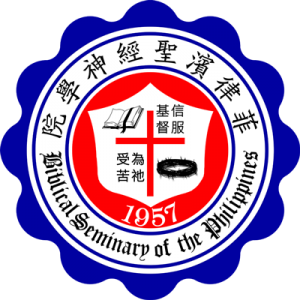English for academic research [electronic resource] : a guide for teachers by Adrian Wallwork.
Series: English for Academic ResearchPublication details: Cham : Springer International Publishing : Springer, c2016Description: 1 online resource (XX, 235 pages 11 illustrations in color.)Content type:- text
- computer
- online resource
- 9783319326870
| Item type | Current library | Call number | Status | Date due | Barcode | |
|---|---|---|---|---|---|---|
 eBooks
eBooks
|
Digital Library | Available |
Part 1.ACADEMIC WRITTEN ENGLISH: WHAT IT IS AND HOW TO TEACH IT -- 1. WHAT IS EAP / SCIENTIFIC ENGLISH? WHAT DO I NEED TO DO TO PREPARE MYSELF TO TEACH SCIENTIFIC ENGLISH? -- 2. THE RESEARCH AND PUBLICATION PROCESS: WHY PAPERS GET REJECTED -- 3. READABILITY -- 4. DIFFICULT GRAMMATICAL STRUCTURES AND OTHER TYPICAL ASPECTS OF ACADEMIC ENGLISH THAT MAY BE BEST LEFT WELL ALONE -- 5. USING GOOGLE TRANSLATE AND ANALYSING STUDENT- AND GT- GENERATED MISTAKES -- 6. TEACHING STUDENTS TO RECOGNIZE THE PROS AND CONS OF SHORT AND LONG SENTENCES -- 7. USING STUDENTS' OWN MATERIALS -- 8. SHOWING HOW SKILLS TAUGHT IN YOUR WRITING COURSE ARE ALSO APPLICABLE IN OTHER AREAS OF COMMUNICATION -- Part 2. ACADEMIC PRESENTATIONS: WHAT THEY ARE AND HOW TO TEACH THEM -- 9. TEACHER'S PREPARATION -- 10. GETTING STUDENTS TO THINK ABOUT PRESENTATIONS -- 11. USING TED -- 12. GIVING FEEDBACK AND TEACHING SELF EVALUATION -- 13. WORKING ON STUDENTS' PRONUNCIATION -- 14. STUDENTS' PROGRESS -- Part 3 -- 15. HOW TO INJECT SOME FUN INTO YOUR LESSONS / MAKING COMPARISONS WITH OTHER AREAS OUTSIDE ACADEMIA -- GIVING STUDENTS ADVICE, DEALING WITH THEIR RESISTANCE, HANDLING DIFFERENT NATIONALITIES -- Part 4 -- 17. CREATING A SYLLABUS -- 18. WHAT'S THE BUZZ? -- 19. WRITING COURSE: LESSON PLANS -- 20. PRESENTATIONS COURSE: LESSON PLANS.
Scientific English is possibly the most rewarding area of EFL teaching. It differs from English for Academic Purposes (EAP) as it is directed to a much smaller audience: PhD and postdoc students. Courses on Scientific English are held in universities throughout the world, yet there is very little support for teachers in understanding what to teach and how to teach it. This guide is part of the English for Academic Research series. Part 1 of the book sheds light on the world of academia, the writing of research papers, and the role of journal editors and reviewers. Part 2 gives practical suggestions on how to help your students improve their presentation skills. In Part 3 you will learn how to teach academic skills using nonacademic examples. Parts 1-3 are thus useful for anyone involved in teaching academic English, whether they have used the other books in the series or not. Part 4 suggests two syllabuses for teaching writing and presenting skills, based on the two core books: English for Writing Research Papers English for Presentations at International Conferences This book will help you i) understand the world of your students (id est academic research), ii) plan courses, and iii) exploit the What's the Buzz? sections in the books on Writing, Presentations, Correspondence and Interacting on Campus. Adrian Wallwork has written over 30 books covering General English (Cambridge University Press, Scholastic), Business English (Oxford University Press), and Scientific English (Springer). He has trained several thousand PhD students from all over the world to write and present their research. Adrian also runs a scientific editing service: English for Academics (E4AC).


